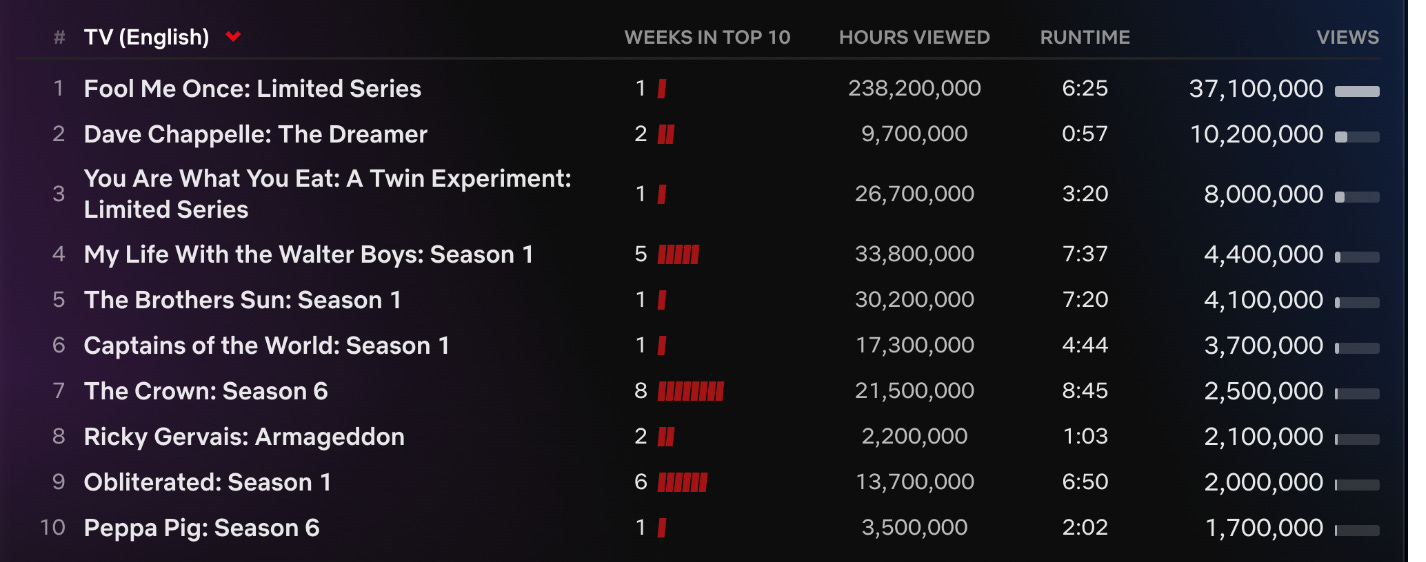If Gervais and Chappelle are so unfunny why are they so popular?
An enquiry into the nature of comedy
Catch-up service:
Leslie’s Razors
The Ruffian’s Greatest Hits 2023
Lessons In How Not To Lead
Over the holidays, Netflix released stand-up specials by Ricky Gervais and Dave Chappelle, both of whom are deemed “anti-woke” by critics. If previous shows were met with outrage, the critical mode this time is ostentatious world-weariness. It’s not so much that these shows are offensive, say the critics (although they are, they are), it’s that they fail as comedy: lazy, dull, hackneyed. Variety’s reviewer, William Earl, says Gervais “tries so hard to be edgy and offensive - but it’s just a total bore.” In the i, Emily Bootle declares that the world has tired of Gervais and Chappelle’s “unfunny takedowns,” and adds, rather primly, “I shan’t give them the satisfaction of calling it ‘shocking’, since that’s exactly what they both want.” The Guardian’s critic, Charles Bramesco informs us that Gervais’s gags rely on "false equivalencies”; that they are “unsophisticated”, and include “incorrect” statements (illogical comedy is the absolute worst). Bramesco concludes that while Gervais and Chappelle appeal to “sycophants” their shows will fail “to make a dent in the mainstream.”
Hang on.
Both shows seem to be making quite large dents. Just as their previous Netflix specials did, Chappelle and Gervais are drawing vast audiences in America and Britain. I see little sign that the public is tired of their unfunny takedowns. I’m sure Netflix’s management don’t relish upsetting their staff but there’s a reason they are willing pay these two tens of millions of dollars each year after year. Netflix has been on an efficiency drive, culling big shows and stars. If Gervais and Chappelle are keepers, it’s because they attract viewers and drive subscriptions at scale, and far more so than, say, Trevor Noah.
There is a startlingly wide disjunction between the critics and the public here. If you read last week’s Ruffian you’ll recall that one of my nine razors was to compare yourself to the median person. I don’t think critics need always agree with the public, even when addressing content explicitly designed to attract mass audiences, but these critics are strikingly incurious about the median viewer. Gervais and Chappelle must be getting something right, and if you can’t see what it is, perhaps you’re not looking very hard. Bramesco ends his piece like this:
“When a comedian wraps himself in a cocoon of his own ideas and surrounds it with those who find them agreeable, he loses the ability to see the outside world.”
That surely goes for critics, too. Here’s what I think they’re not seeing.






